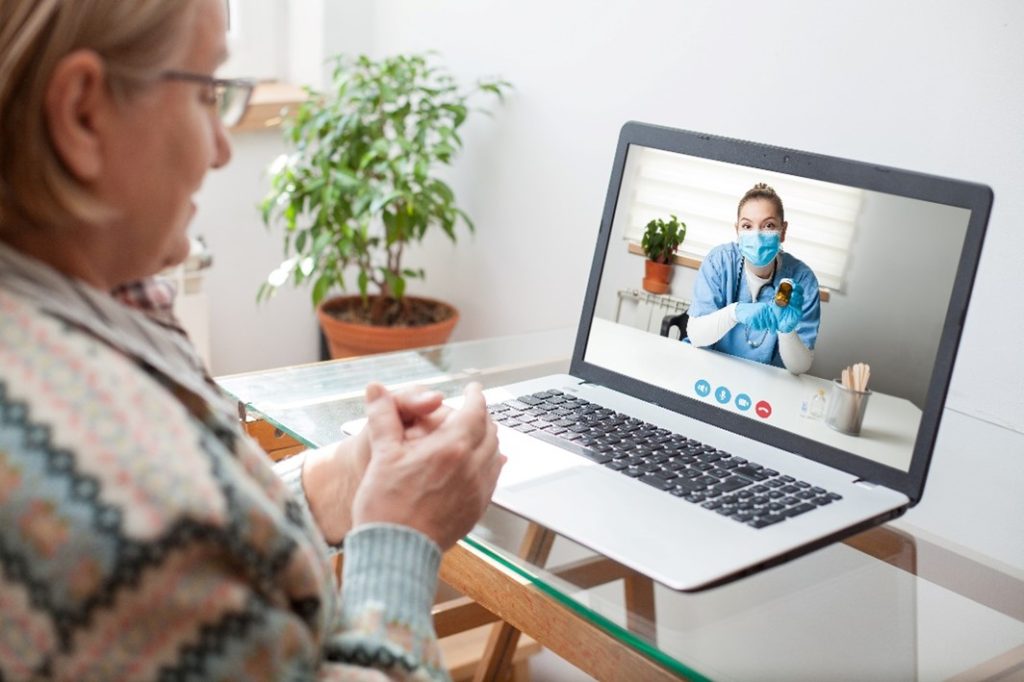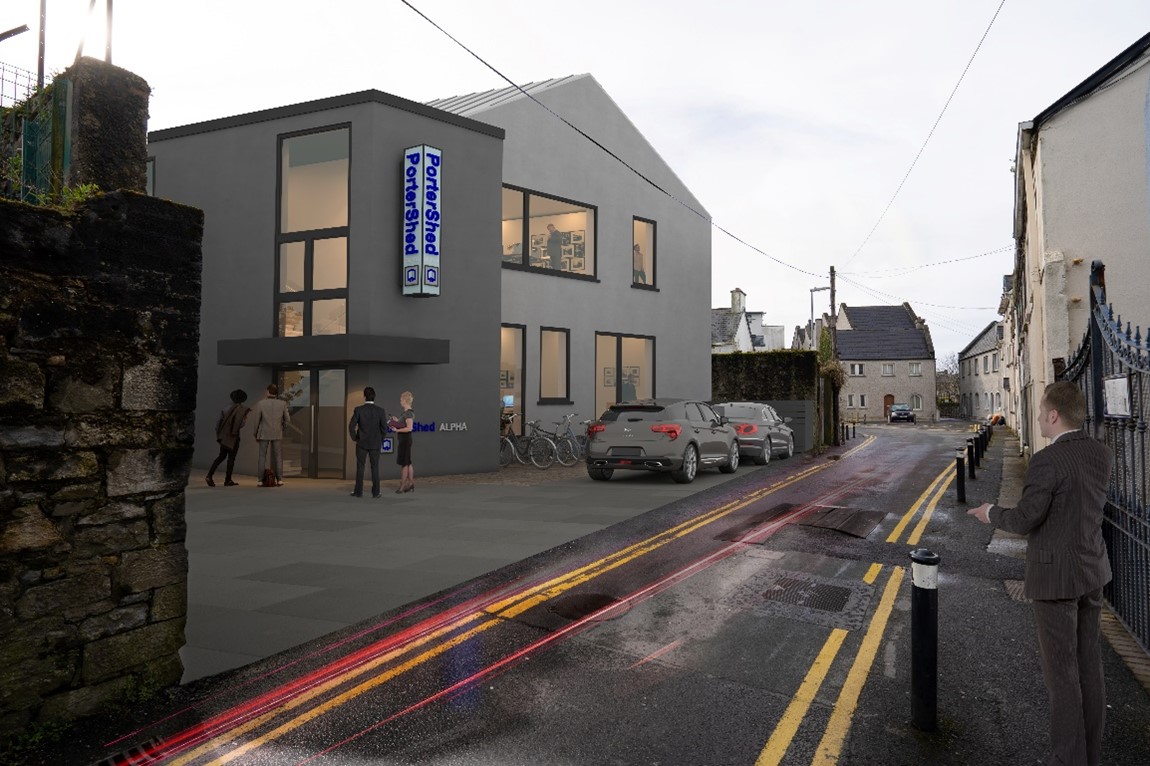 With the rush to the beach or getting time away after two years of COVID-induced lockdowns, you might have missed the news of Amazon’s most recent acquisition this summer.
On 21 July, Amazon announced that it had acquired One Medical, in a cash deal valued at $3.9 billion.
One Medical is a membership-based primary care practice which provides healthcare to patients through a combination of in-person, digital and virtual care services in locations across the U.S.
The company is using technology to drive innovation in primary healthcare such as by allowing online booking for GP appointments or text messaging with doctors, in addition to 24/7 on demand tele-healthcare. It has also built its own medical records technology from the ground up to help doctors better manage patient relationships.
One Medical was one of the earliest companies in the U.S. to recognise the enormous potential of technology to improve both access to and quality of healthcare.
With the rush to the beach or getting time away after two years of COVID-induced lockdowns, you might have missed the news of Amazon’s most recent acquisition this summer.
On 21 July, Amazon announced that it had acquired One Medical, in a cash deal valued at $3.9 billion.
One Medical is a membership-based primary care practice which provides healthcare to patients through a combination of in-person, digital and virtual care services in locations across the U.S.
The company is using technology to drive innovation in primary healthcare such as by allowing online booking for GP appointments or text messaging with doctors, in addition to 24/7 on demand tele-healthcare. It has also built its own medical records technology from the ground up to help doctors better manage patient relationships.
One Medical was one of the earliest companies in the U.S. to recognise the enormous potential of technology to improve both access to and quality of healthcare.
 Amazon’s SVP of Health Services, Neil Lindsay, summed up the opportunity when he noted:
Amazon’s SVP of Health Services, Neil Lindsay, summed up the opportunity when he noted:
“…. healthcare is high on the list of experiences that need reinvention.”
“Booking an appointment, waiting weeks or even months to be seen, taking time off work, driving to a clinic, finding a parking spot, waiting in the waiting room then the exam room for what is too often a rushed few minutes with a doctor, then making another trip to a pharmacy – we see lots of opportunity to both improve the quality of the experience and give people back valuable time in their days”
While the agreement was met with some discussion around the risk of Big Tech and the privacy of patient health information, it equally met with optimistic commentary on the ability of Amazon to bring much-needed efficiencies and improved customer experience to health care, as it has to retail shopping. The caveat is that the healthcare is different from purchasing new trainers given its nature and the fact that some costs just cannot be squeezed. But its’ certainly true that technology, and the high-quality broadband connectivity upon which it is based, can fundamentally change how healthcare is delivered and how patients experience it. Primary care is just Amazon’s latest move into health care. The company acquired online pharmacy PillPack in 2018 for over $700 million and launched its own online prescription delivery service Amazon Pharmacy in 2020. There are also rumours that Amazon is considering starting a new digital therapy and counselling platform. Whether, or not, Amazon’s foray into healthcare is the commoditisation of health and whether that’s a good or bad thing is beside the point. The truth is that as Neil Lindsay put it “healthcare is high on the list of experiences that need reinvention.” Technology across all aspects of our lives has put power back in the hands of people, broken down unnatural and societal barriers to equality of access in areas as diverse as education, travel or share trading. Yet healthcare, particularly patient experience of accessing care, remains one of the few sectors where the impact of connectivity and digital technologies doesn’t appear to have made as much cut through.
While most activities can be booked online such as a haircut or an NCT for a car, why not an appointment with a GP? Equally, in Ireland’s hospital system there is no single digital health record for each patient to provide a catch-all record of a patient’s lifelong medical history. Instead, 85% of all hospital records remain paper-based and hospitals can’t access GP data and vice versa.
Yet healthcare, particularly patient experience of accessing care, remains one of the few sectors where the impact of connectivity and digital technologies doesn’t appear to have made as much cut through.
While most activities can be booked online such as a haircut or an NCT for a car, why not an appointment with a GP? Equally, in Ireland’s hospital system there is no single digital health record for each patient to provide a catch-all record of a patient’s lifelong medical history. Instead, 85% of all hospital records remain paper-based and hospitals can’t access GP data and vice versa.
85% of all hospital records are still paper based.
Accelerated changed and faster digital uptake in healthcare is achievable. The pandemic showed us what’s possible, albeit in response to an emergency situation. The rollout of the Covid-19 vaccination programme was predominantly over a digital platform. The move to e-prescriptions also during the pandemic – stalled for years prior to that - rapidly simplified and enhanced prescription practices overnight. Patients, too, managed to successfully navigate both processes. The digital win’s during COVID in Irish healthcare can continue. With groups like the Irish Digital Health Leadership Group, a collective of health, IT and patient experts, looking to accelerate the timelines for delivery.In Ireland we have a wealth of health tech companies, many who are world leaders in their field whose expertise can be tapped into to develop local solutions for Irish patients.
Examples include, SilverCloudHealth, which has delivered online mental health programmes to over a million individuals and 500 organisations globally, including in Ireland. LetsGetChecked is another Irish-grown company making waves in healthcare internationally. The company offers more than 30 home diagnostic tests in the categories of sexual health, women’s health, men’s health, wellness and coronavirus, with more than seven million tests delivered worldwide to date. In addition, in the U.S. its’ users can order medication online. Health Beacon, a patient medication management system, is just another further example of an Irish company growing rapidly overseas. Added to these is the strong presence of global med-tech and pharma FDA companies dotted across Ireland, all whose expertise could be brought to bear. The Government has set a target of all homes and businesses having access to a Gigabit network by 2028. Through the work of commercial broadband network operators such as SIRO or National Broadband Ireland people in every corner of Ireland will have reliable and secure connectivity. At a time in Ireland when wait times for accessing health services can be long, reinventing healthcare delivery and expanding investment in digital health services could offer a solution to ensure faster access to care for many. [lookup_modal type="eircode" button-text="Search Your Eircode Today" position="mid" title="Search Your Eircode Today"]
 SIRO’s Employee Experience Manager and Executive Assistant to the CEO (Chief Executive Officer), Gillian Quigley, explores digital wellbeing apps, mental health, and the importance of staying connected.
They say these days that there’s an app for everything. An app to order food or clothes, to stream your favourite shows, and even to adjust the temperature within your home. But what about an app to improve your mental health? General wellbeing and morale over the course of the past three years has naturally dipped because of strict restrictions, lockdowns and varying levels of anxiety within society. People yearned for diverse ways to connect when the effects of loneliness in Ireland was higher than ever before.
SIRO’s Employee Experience Manager and Executive Assistant to the CEO (Chief Executive Officer), Gillian Quigley, explores digital wellbeing apps, mental health, and the importance of staying connected.
They say these days that there’s an app for everything. An app to order food or clothes, to stream your favourite shows, and even to adjust the temperature within your home. But what about an app to improve your mental health? General wellbeing and morale over the course of the past three years has naturally dipped because of strict restrictions, lockdowns and varying levels of anxiety within society. People yearned for diverse ways to connect when the effects of loneliness in Ireland was higher than ever before.  SIRO, like other companies provide apps to augment our support resources. However, you may choose to research, evaluate and use your own preferred option. There are many popular and affordable apps that don’t require intervention from your workplace. Some of these apps include ,
SIRO, like other companies provide apps to augment our support resources. However, you may choose to research, evaluate and use your own preferred option. There are many popular and affordable apps that don’t require intervention from your workplace. Some of these apps include ,  In acknowledging that digital wellbeing apps are a natural progression for health services, with more services coming online each day, it’s important to ensure that your home or business is prepared for this evolution. SIRO’s fibre to the premises broadband is a ‘one size fits all’ type of connectivity that’s resilient enough to handle any video calls, heavy data uploads without a break in signal, when using cloud-based health platforms.
The pandemic has shown us that connectivity matters now, more than ever before. Staying connected with your friends, family and your own self is vital to having a positive, healthy state of mind.
If you or someone you know are experiencing mental health issues, please contact:
In acknowledging that digital wellbeing apps are a natural progression for health services, with more services coming online each day, it’s important to ensure that your home or business is prepared for this evolution. SIRO’s fibre to the premises broadband is a ‘one size fits all’ type of connectivity that’s resilient enough to handle any video calls, heavy data uploads without a break in signal, when using cloud-based health platforms.
The pandemic has shown us that connectivity matters now, more than ever before. Staying connected with your friends, family and your own self is vital to having a positive, healthy state of mind.
If you or someone you know are experiencing mental health issues, please contact:  The hospitality industry is a vital element of the Irish economy, with the
The hospitality industry is a vital element of the Irish economy, with the 

 Enterprise Ireland is the State Agency responsible for supporting exporting Irish-owned companies. We support start-ups from initial ideation stage in many settings, whether entrepreneurship training, third level institutions, start-up hubs or others. We are also an investor in many Irish funds offering seed and venture capital to companies and are a large direct equity investor in our own right.
Our offer for established companies includes direct financial support and advice for expansion, investment, productivity improvement and innovation. We also provide advice and guidance for companies through dedicated Development Advisors on our team. Enterprise Ireland has 40 offices all around the world focused on market access and support for companies to grow and expand internationally
Enterprise Ireland is the State Agency responsible for supporting exporting Irish-owned companies. We support start-ups from initial ideation stage in many settings, whether entrepreneurship training, third level institutions, start-up hubs or others. We are also an investor in many Irish funds offering seed and venture capital to companies and are a large direct equity investor in our own right.
Our offer for established companies includes direct financial support and advice for expansion, investment, productivity improvement and innovation. We also provide advice and guidance for companies through dedicated Development Advisors on our team. Enterprise Ireland has 40 offices all around the world focused on market access and support for companies to grow and expand internationally

 We are living in a digital era, where anyone can run a business, work, and play online. With great advancements in software, hardware, and broadband enabling us to be more connected than ever, it is also more important to protect ourselves online.
Cybersecurity is a critical function of any business’ operations. It is defined as “the state of being protected against the criminal or unauthorised use of electronic data, or the measures taken to achieve this.”
During the first wave of the pandemic, Ireland became acutely aware of the significance of cybersecurity and what can occur when there is a breach in an organisation’s network. In May 2020, the HSE (Health Service Executive) fell victim to what is now known as one of the largest ransomware attacks in the history of the Irish state. Critical services were forced offline and large volumes of personal data were breached.
We are living in a digital era, where anyone can run a business, work, and play online. With great advancements in software, hardware, and broadband enabling us to be more connected than ever, it is also more important to protect ourselves online.
Cybersecurity is a critical function of any business’ operations. It is defined as “the state of being protected against the criminal or unauthorised use of electronic data, or the measures taken to achieve this.”
During the first wave of the pandemic, Ireland became acutely aware of the significance of cybersecurity and what can occur when there is a breach in an organisation’s network. In May 2020, the HSE (Health Service Executive) fell victim to what is now known as one of the largest ransomware attacks in the history of the Irish state. Critical services were forced offline and large volumes of personal data were breached.
 If security is one of your concerns, fibre beats copper in every way. Fibre is much more secure and less easy to tap into than a standard copper cable. As fibre cables do not need to be grounded in the same way that copper cables do, it means that there is much less chance for other digital interferences or bugging/tapping concerns.
Fibre networks also enable you to put all your electronics and hardware in one secure central location, instead of having wiring closets with equipment throughout the building.
Therefore, the confidentiality, integrity, and availability (CIA) of your data is vastly improved.
Data is now one of our most valuable commodities. Protecting your customers and employee’s data should be a key driver in strengthening your business’s network.
As businesses become more tech-savvy and integrate digital services, like Customer Relationship Management (CRM) tools, into their daily practices, on the flip side, hackers and phishers are also becoming more sophisticated in targeting SMEs. According to
If security is one of your concerns, fibre beats copper in every way. Fibre is much more secure and less easy to tap into than a standard copper cable. As fibre cables do not need to be grounded in the same way that copper cables do, it means that there is much less chance for other digital interferences or bugging/tapping concerns.
Fibre networks also enable you to put all your electronics and hardware in one secure central location, instead of having wiring closets with equipment throughout the building.
Therefore, the confidentiality, integrity, and availability (CIA) of your data is vastly improved.
Data is now one of our most valuable commodities. Protecting your customers and employee’s data should be a key driver in strengthening your business’s network.
As businesses become more tech-savvy and integrate digital services, like Customer Relationship Management (CRM) tools, into their daily practices, on the flip side, hackers and phishers are also becoming more sophisticated in targeting SMEs. According to  Right now, we’re in the midst of a digital revolution. The pandemic accelerated the integration and widespread adoption of digital living, but it also forced businesses into a sort of “Digital Darwinism.” A phenomenon defined as “technology that advances faster than the business can adapt.”
Adapting to the sudden requirement to operate digitally, motivated businesses across the world to integrate digital practices or be left behind. The most common example for businesses during COVID was (what used to be known as) telecommuting, better known today as remote working or work from home.
Before COVID-19, a clunky process of dialling in or spending time in traffic to commute to the office was the most common method of attending a meeting. Various lockdowns and Government work from home decrees fast-tracked video calls as the standard meeting format - saving time, energy, and reducing carbon emissions through less commuting. While the transition was not without its growing pains, it’s become the norm for even the most tech adverse.
The good news is that Ireland has made substantial progress on digital development when compared to EU counterparts. Each year, the Digital Economic Society Index compares countries adaptation and integration of all things digital, including connectivity and digitisation of public services.
Overall, Ireland ranks in the top 5 countries in the EU27. Ireland fell short on connectivity in previous years, but in 2021, coverage of Very High-Capacity Networks (VHCN) skyrocketed from 35% to 85%. This is thanks in no small part from fibre network providers, like SIRO, rolling out FTTH (Fibre To The Home) broadband. Productivity increases are one of the most basic benefits to transforming a business’s digital practices, but that’s just scratching the surface. It’s important that any digital change benefits a company internally, but the main driver for success should be to improve customers’ experience.
Right now, we’re in the midst of a digital revolution. The pandemic accelerated the integration and widespread adoption of digital living, but it also forced businesses into a sort of “Digital Darwinism.” A phenomenon defined as “technology that advances faster than the business can adapt.”
Adapting to the sudden requirement to operate digitally, motivated businesses across the world to integrate digital practices or be left behind. The most common example for businesses during COVID was (what used to be known as) telecommuting, better known today as remote working or work from home.
Before COVID-19, a clunky process of dialling in or spending time in traffic to commute to the office was the most common method of attending a meeting. Various lockdowns and Government work from home decrees fast-tracked video calls as the standard meeting format - saving time, energy, and reducing carbon emissions through less commuting. While the transition was not without its growing pains, it’s become the norm for even the most tech adverse.
The good news is that Ireland has made substantial progress on digital development when compared to EU counterparts. Each year, the Digital Economic Society Index compares countries adaptation and integration of all things digital, including connectivity and digitisation of public services.
Overall, Ireland ranks in the top 5 countries in the EU27. Ireland fell short on connectivity in previous years, but in 2021, coverage of Very High-Capacity Networks (VHCN) skyrocketed from 35% to 85%. This is thanks in no small part from fibre network providers, like SIRO, rolling out FTTH (Fibre To The Home) broadband. Productivity increases are one of the most basic benefits to transforming a business’s digital practices, but that’s just scratching the surface. It’s important that any digital change benefits a company internally, but the main driver for success should be to improve customers’ experience.
 It’s true that technology and connectivity are cornerstones of a digital business, but one key factor that determines success is adaptability. Companies that have proven adaptability is the key to survival in a digital world, include Netflix and Adobe. Previously, Netflix operated as a DVD rental business, however in the mid 00’s they transitioned to a streaming platform and in turn disrupted the TV and media industry completely.
Adobe, known for their varying software systems, previously rented out software on floppy disks and CDs. Initially it was a one-time, costly purchased. After the recession in 2008, they adapted to the needs of their customers and changed their licensing to a monthly fee or SaaS (Software as a Service) that was upgraded using cloud-based technology, making renewals easier and more cost-effective.
While important businesses adopt digital practices to optimise how their employees work, they must also ensure employees are poised to adapt to the transition. Digital upskilling is essential if your business is to remain agile. According to
It’s true that technology and connectivity are cornerstones of a digital business, but one key factor that determines success is adaptability. Companies that have proven adaptability is the key to survival in a digital world, include Netflix and Adobe. Previously, Netflix operated as a DVD rental business, however in the mid 00’s they transitioned to a streaming platform and in turn disrupted the TV and media industry completely.
Adobe, known for their varying software systems, previously rented out software on floppy disks and CDs. Initially it was a one-time, costly purchased. After the recession in 2008, they adapted to the needs of their customers and changed their licensing to a monthly fee or SaaS (Software as a Service) that was upgraded using cloud-based technology, making renewals easier and more cost-effective.
While important businesses adopt digital practices to optimise how their employees work, they must also ensure employees are poised to adapt to the transition. Digital upskilling is essential if your business is to remain agile. According to 
 Last week SIRO and Vodafone jointly announced Galway’s
Last week SIRO and Vodafone jointly announced Galway’s  Fast forward to 2022, COVID and the shift to remote working has changed both appreciation and demand for co-working and remote working facilities right across Ireland. While not every town has a hub, just yet, increasing numbers do. They are also a growing feature of neighbourhoods within our city suburbs.
Describing hubs as merely co-working spaces, creates the impression of facilities for hot-desking only, a disservice to their full offering.
Most are set up to provide space for start-ups and small enterprises to have access to best-in-class facilities and shared services such as IT, admin support, staff canteen or break out spaces, which small businesses typically might struggle to afford.
Beyond the physical facilities, hubs also offer opportunities for businesses to collaborate, share ideas and knowledge, and collectively problem solve. They are critical also for the social side of working life, providing outlets for users to meet and engage with others – something many employees working from home yearned a lot during various lockdowns.
Fast forward to 2022, COVID and the shift to remote working has changed both appreciation and demand for co-working and remote working facilities right across Ireland. While not every town has a hub, just yet, increasing numbers do. They are also a growing feature of neighbourhoods within our city suburbs.
Describing hubs as merely co-working spaces, creates the impression of facilities for hot-desking only, a disservice to their full offering.
Most are set up to provide space for start-ups and small enterprises to have access to best-in-class facilities and shared services such as IT, admin support, staff canteen or break out spaces, which small businesses typically might struggle to afford.
Beyond the physical facilities, hubs also offer opportunities for businesses to collaborate, share ideas and knowledge, and collectively problem solve. They are critical also for the social side of working life, providing outlets for users to meet and engage with others – something many employees working from home yearned a lot during various lockdowns.
 PorterShed joining the SIRO-Vodafone Gigabit Hubs will see both new premises receiving a high-quality Gigabit fibre broadband, ensuring that its member companies have fast and reliable broadband. This connectivity, whilst enhancing the attractiveness of the PorterShed, also ensures it has
PorterShed joining the SIRO-Vodafone Gigabit Hubs will see both new premises receiving a high-quality Gigabit fibre broadband, ensuring that its member companies have fast and reliable broadband. This connectivity, whilst enhancing the attractiveness of the PorterShed, also ensures it has